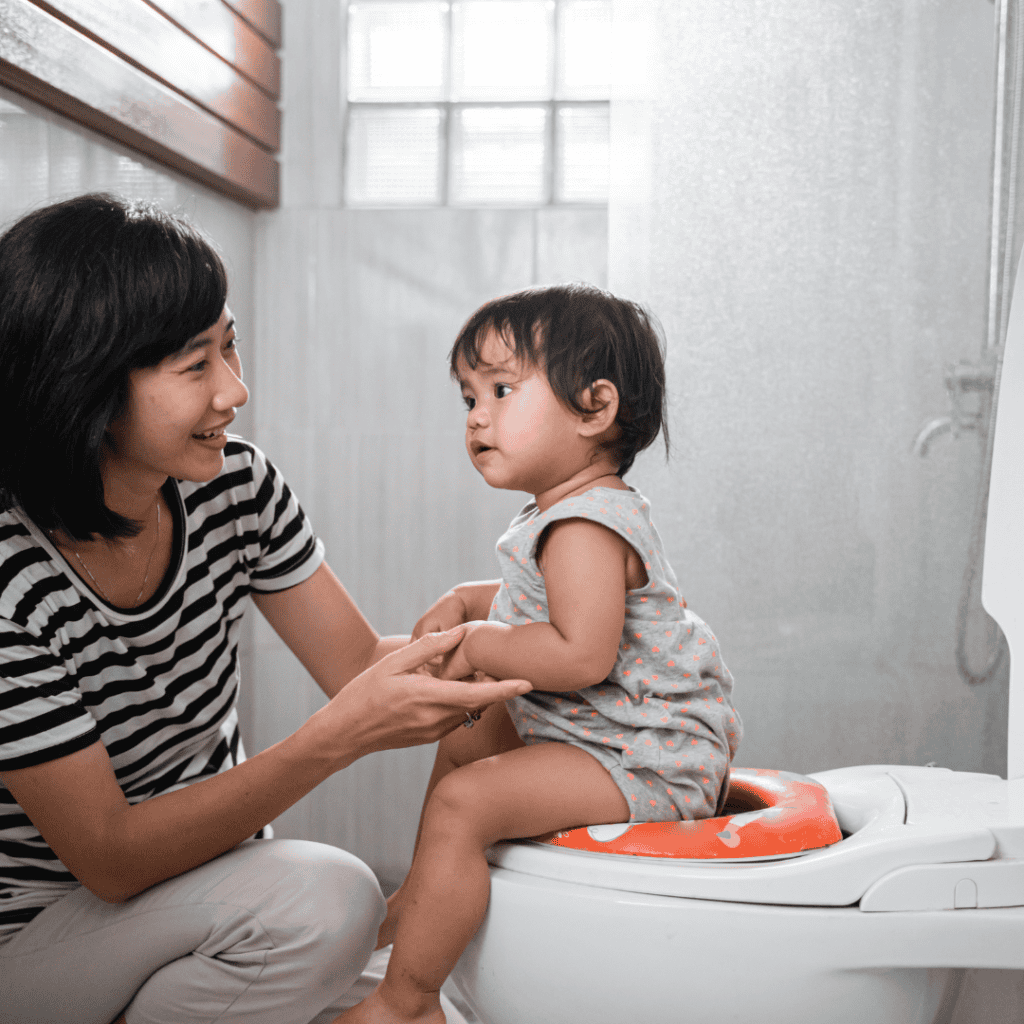Embarking on the journey of toilet training with your child can be a daunting task, fraught with uncertainties and challenges. Amidst the inevitable accidents and frustrations, parents often seek effective strategies to ease the process and promote success. One such strategy, backed by both research and anecdotal evidence, is the power of positive reinforcement. In this article, we delve into the profound impact of positive reinforcement techniques on toilet training outcomes. From understanding the principles behind positive reinforcement to practical tips for implementation, we uncover how this approach can transform the toilet training experience into a positive and rewarding journey for both parents and children alike. Whether you’re just starting the toilet training process or seeking solutions for setbacks, harnessing the power of positive reinforcement could be the key to unlocking success and turning potty training challenges into triumphs.
Long-Term Benefits of Positive Reinforcement in Toilet Training
Toilet training is a significant milestone in a child’s development, and the approach taken can have lasting effects. Positive reinforcement, in particular, plays a crucial role not only in achieving success in toilet training but also in shaping a child’s behavior and mindset for the long term. In this article, we explore the profound and enduring benefits of using positive reinforcement techniques in toilet training.

Building Self-Esteem
Positive reinforcement fosters a sense of accomplishment and boosts a child’s self-esteem. When children receive praise and rewards for their efforts in toilet training, they develop confidence in their abilities, setting a foundation for future challenges they may encounter.
Promoting Independence
By positively reinforcing their achievements in toilet training, children learn to take ownership of their actions and develop a sense of independence. This independence extends beyond the realm of toilet training and empowers children to tackle other tasks and responsibilities as they grow.
Enhancing Parent-Child Bond
Positive reinforcement strengthens the bond between parent and child during the toilet training process. By offering praise, encouragement, and rewards, parents create a supportive and nurturing environment that fosters trust and communication, laying the groundwork for a positive relationship in the years to come.
Establishing Healthy Habits
The use of positive reinforcement encourages consistency and perseverance in toilet training efforts. As children experience success and receive positive feedback, they are more likely to embrace the habits and routines associated with using the toilet, leading to long-term adherence to healthy bathroom habits.
Reducing Stress and Anxiety
Positive reinforcement helps alleviate stress and anxiety associated with toilet training for both children and parents. Instead of focusing on mistakes or setbacks, the emphasis is placed on progress and achievements, creating a more relaxed and positive atmosphere conducive to learning.
Balancing Positive Reinforcement with Patience
Finding the right balance between positive reinforcement and patience is crucial for successful toilet training. While positive reinforcement encourages desired behavior, patience allows children the time and space to learn at their own pace without pressure. Let’s explore key points on striking this balance effectively.
- Set Realistic Expectations: Understand that toilet training is a process that takes time and patience. Set realistic expectations for your child’s progress and be prepared for setbacks along the way.
- Use Positive Reinforcement Strategically: Employ positive reinforcement techniques such as praise, rewards, and encouragement to motivate your child during toilet training. However, be mindful not to overdo it or rely solely on rewards, as this can lead to dependency.
- Practice Consistency and Routine: Consistency is key in toilet training. Stick to a regular schedule and routine to help your child understand expectations and establish habits.
- Remain Calm and Patient: Stay calm and patient, especially during moments of frustration or accidents. Avoid expressing disappointment or frustration, as this can undermine your child’s confidence and motivation.
Overcoming Challenges with Positive Reinforcement
Toilet training can be a challenging journey for both parents and children alike. While positive reinforcement is a powerful tool in encouraging desired behaviors, it’s not uncommon to encounter obstacles along the way. In this blog post, we’ll explore common challenges in toilet training and how positive reinforcement can help overcome them. By understanding these hurdles and utilizing positive reinforcement effectively, you can navigate through the process with patience and confidence.
Resistance to Using the Toilet
One of the primary challenges parents face in toilet training is resistance from their child to use the toilet. This resistance can stem from fear, discomfort, or simply a lack of interest. Positive reinforcement can help alleviate this resistance by creating a positive association with using the toilet. Praising your child for small steps, such as sitting on the toilet or even just showing interest, can gradually reduce their resistance and increase their willingness to participate.
Accidents and Setbacks
Accidents are a natural part of the toilet training process, but they can be frustrating for both parents and children. Instead of reacting with frustration or disappointment, use positive reinforcement to encourage your child to keep trying. Offer praise and encouragement when they make an effort, even if it results in an accident. This positive reinforcement helps your child feel supported and motivated to continue their progress despite setbacks.
Difficulty Recognizing When to Go
Many children struggle with recognizing the signs that they need to use the toilet, leading to accidents or missed opportunities. Positive reinforcement can help teach your child to recognize these signals by praising them when they communicate their need to go or make an effort to use the toilet independently. By positively reinforcing their awareness and communication, you can empower your child to take control of their toilet training journey.
Regression in Progress
Regression is a common occurrence in toilet training, especially during times of stress or change. Instead of viewing regression as a setback, approach it as a natural part of the learning process. Use positive reinforcement to support your child through this phase, offering praise and reassurance when they show any signs of progress or effort. By focusing on the positives and maintaining consistency, you can help your child overcome regression and continue moving forward.
Disinterest or Lack of Motivation
Some children may show little interest or motivation in toilet training, making the process more challenging for parents. Positive reinforcement can help spark motivation by making toilet training a fun and rewarding experience. Incorporate incentives such as sticker charts, special treats, or praise for each successful trip to the toilet. By making toilet training engaging and enjoyable, you can ignite your child’s motivation and enthusiasm for learning this new skill.
Conclusion
Positive reinforcement is a powerful tool in toilet training that can help your child learn to use the toilet successfully and confidently. By focusing on rewarding good behavior rather than punishing bad behavior, you can create a positive and encouraging environment that fosters growth and development. At Positive Solutions Behavior Group LLC, our experienced professionals are dedicated to helping families overcome common challenges in toilet training and promoting healthy habits that last a lifetime.
If you’re struggling with toilet training or have questions about how to implement positive reinforcement strategies, we invite you to contact us at (859) 282-0400. Our team of experts is here to provide personalized guidance and support to help your child succeed. Based in Lakewood Ranch, FL, we serve families throughout the region and are committed to helping you achieve your goals.






